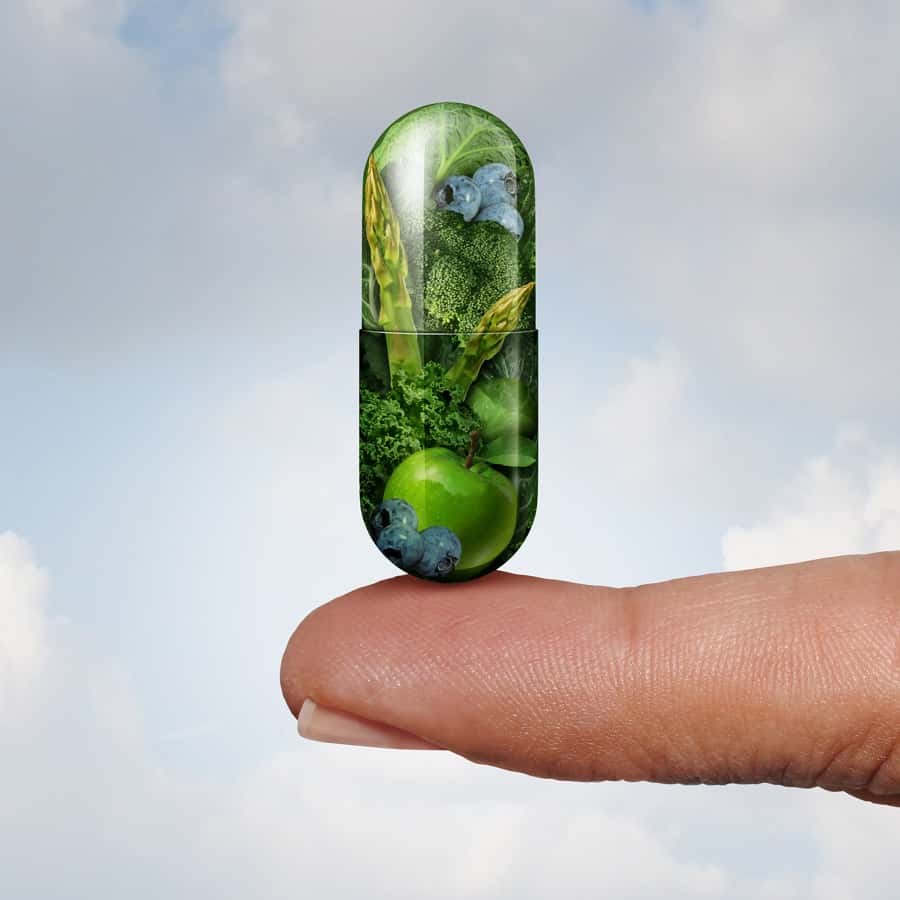
If you take multiple dietary supplements, do you worry about how your herbs interact? A number of studies have addressed herb-drug interactions. However, we suspect that herbal medicines might also affect each other. That is an astute question from a reader. We only wish scientists could help us answer it!
How Do Herbs Interact?
Q. I have a question about herb-herb interactions. From my reading, I’m aware that many medicinal herbs can interact with drugs, but I am wondering about how herbs interact with each other.
I sometimes take multiple herbs at the same time, including turmeric and elderberry on a daily basis. My mom takes turmeric and elderberry along with garlic and ginkgo biloba. Is this okay? I know that some herbs and spices have synergistic properties if used together as well, such as turmeric and ginger for pain. I’ve searched high and low for studies on herb-herb interactions and can’t find a thing.
Data Is Scarce on Herb-Herb Interactions:
A. Your question is excellent, but answering it requires research that has not been done. Ever since scientists discovered that grapefruit and grapefruit juice could have a significant impact on the blood levels of certain drugs, they have studied interactions between herbs and drugs. They realized that some herbal supplements might have similar action as grapefruit (Drug Metabolism and Disposition, Oct. 2020). Consequently, they predict that St. John’s wort, green tea extract, valerian root and horehound might interact with the same drugs that grapefruit affects.
However, we have not seen any studies on interactions between herbal products or dietary supplements themselves. Some of the products your mother is taking, especially turmeric, garlic and ginkgo, have anticoagulant activity. If she finds that she bruises easily, she might want to drop at least one of her supplements. Older people may be more sensitive to herb-drug and possibly also herb-herb interactions (Drugs & Aging, April 27, 2007).
Dietary Supplements Could Interact with Drugs:
One in three Americans takes at least one dietary supplement in addition to a prescription medication. As a result, they risk a hazardous interaction, according to investigators for the US Army Research Institute of Environmental Medicine.
The scientists analyzed data from the National Health and Nutrition Examination Survey (NHANES) conducted between 2005 and 2008 (Journal of the Academy of Nutrition and Dietetics, Nov. 2014). More than 10,000 adults participated.
Nearly half of people with chronic conditions including arthritis, heart disease, hypertension or high cholesterol took both supplements and medications. Those on heart medicines often added fish oil, multivitamins or herbs. The investigators warn patients to check for potential interactions before mixing prescription drugs and botanicals. Herbs that alter liver metabolism could affect blood levels of medicines.
Citations
- Loretz C et al, "Application of cryopreserved human intestinal mucosa and cryopreserved human enterocytes in the evaluation of herb-drug interactions: Evaluation of CYP3A inhibitory potential of grapefruit juice and commercial formulations of twenty-nine herbal supplements." Drug Metabolism and Disposition, Oct. 2020. DOI: 10.1124/dmd.120.000033
- Gurley BJ et al, "Clinical assessment of effects of botanical supplementation on cytochrome P450 phenotypes in the elderly: St John's wort, garlic oil, Panax ginseng and Ginkgo biloba." Drugs & Aging, April 27, 2007. DOI: 10.2165/00002512-200522060-00006
- Farina EK et al, "Concomitant dietary supplement and prescription medication use is prevalent among US adults with doctor-informed medical conditions." Journal of the Academy of Nutrition and Dietetics, Nov. 2014. DOI:https://doi.org/10.1016/j.jand.2014.01.016

